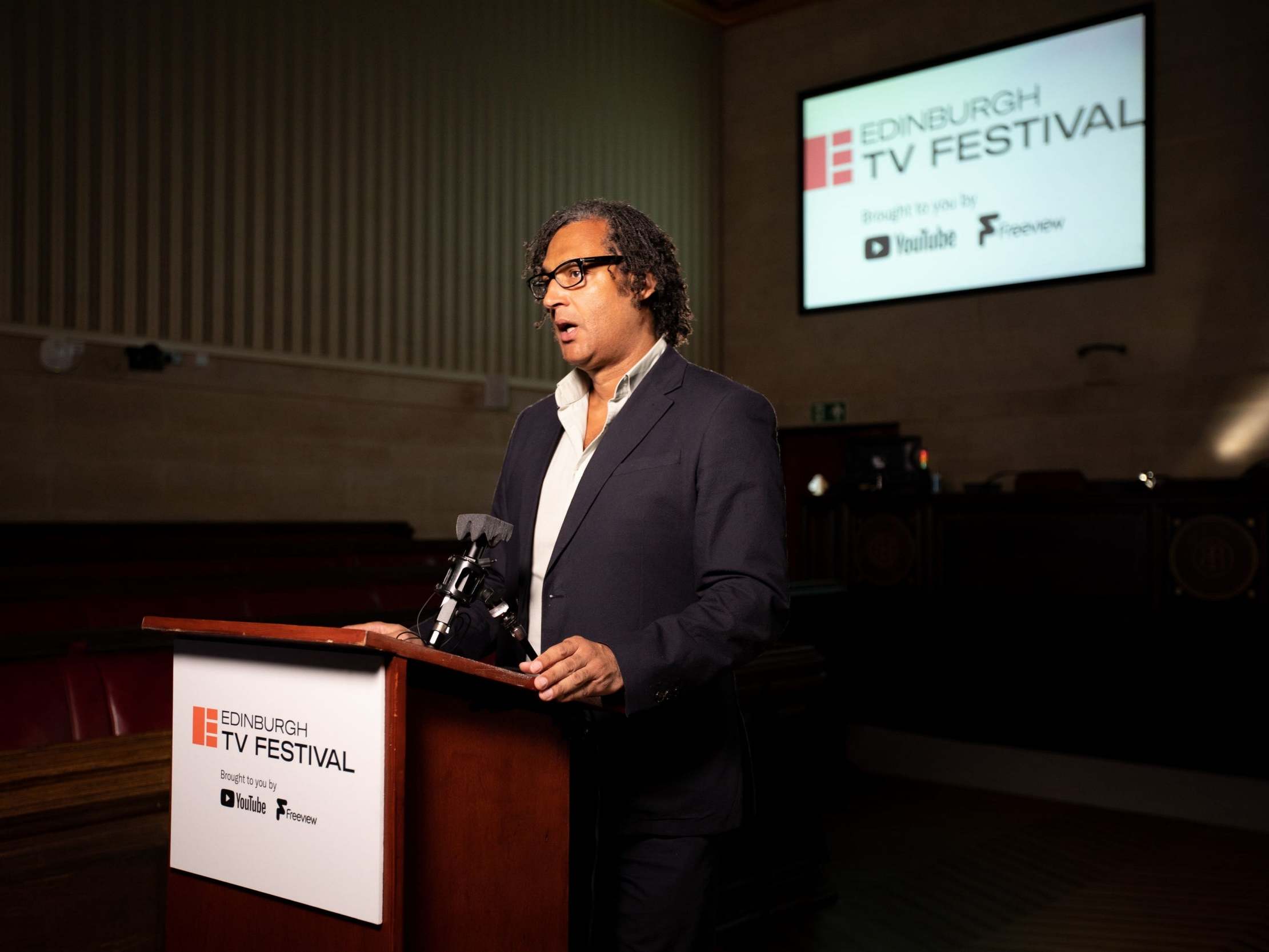TV industry’s racism has caused a ‘lost generation’ of black talent, says David Olusoga
Broadcaster and historian describes himself as ‘survivor’ rather than ‘success story’

Your support helps us to tell the story
This election is still a dead heat, according to most polls. In a fight with such wafer-thin margins, we need reporters on the ground talking to the people Trump and Harris are courting. Your support allows us to keep sending journalists to the story.
The Independent is trusted by 27 million Americans from across the entire political spectrum every month. Unlike many other quality news outlets, we choose not to lock you out of our reporting and analysis with paywalls. But quality journalism must still be paid for.
Help us keep bring these critical stories to light. Your support makes all the difference.
Racism in the TV industry has caused a “lost generation” of black talent who quit after suffering discrimination, David Olusoga has said.
The broadcaster and historian told the Edinburgh TV Festival his past experiences of depression and wanting to leave television were similar to those of “many black and brown people” in the industry.
Delivering the keynote James MacTaggart lecture at the online event, Olusoga described himself as a “survivor”, rather than a “success story”.
He added: “I am one of the last men standing of TV’s lost generation.
“The generation of black and brown people who entered this industry 15, 20, 25 years ago with high hopes.
“I’m a survivor of a culture within TV that failed that generation.
“I’m here because a handful of people used their power and their privilege to help me.”
Olusoga said that during his early years in television “there were parts of the industry in which diversity meant making sure that there was a fair balance of people from Oxford and Cambridge”.
He added that it is “lonely” as a black person in the television industry.
“Being the only black person on a production means being the only person asking certain questions, the only person uncomfortable that an image or a sequence reinforces certain stereotypes,” he said.
“Like other black people I know in this industry, I’ve spent my career complaining that scripts or rough cuts contain interviews with white experts, while all the black contributors are victims of the phenomena in question are speaking about their personal experiences – their feelings not their expertise.”
Olusoga said he had been labelled as “difficult” during his career.
The Civilisations presenter said that while he has received “amazing opportunities”, he has also been “patronised and marginalised”.
“I’ve been in high demand, but I’ve also been on the scrap heap,” he said.
“I’ve felt inspired, and convinced that our job – making TV and telling stories – is the best job in the world.
“But at other times I’ve been so crushed by my experiences, so isolated and disempowered by the culture that exists within our industry, that I have had to seek medical treatment for clinical depression.
“I’ve come close to leaving this industry on several occasions. And I know many black and brown people who have similar stories to tell.”
Olusoga said that the lack of diversity is particularly noticeable in production roles and “people who make and commission the UK’s television programmes do not look like the population at large – our audience”.
He said the Black Lives Matter movement had “forced our society to have conversations that for decades we have put off or avoided”.
Olusoga received widespread praise for his speech, with MP David Lammy thanking him for an “exemplary, masterly and sobering” lecture.
Actress Rebecca Front urged people to read a transcript of his “profound, powerful and personal” words, while BBC Radio 1xtra DJ Mistajam tweeted: “As someone who has worked in television and also as someone who works in radio and has done for 15 years, every single word resonated.”
Additional reporting by Press Association
Subscribe to Independent Premium to bookmark this article
Want to bookmark your favourite articles and stories to read or reference later? Start your Independent Premium subscription today.
Join our commenting forum
Join thought-provoking conversations, follow other Independent readers and see their replies
Comments